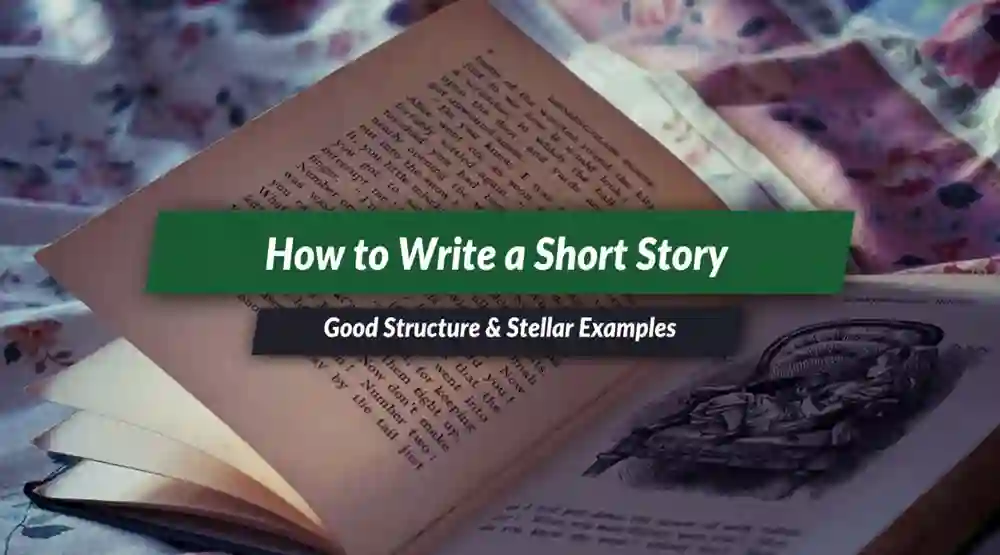You know that moment when you’re trying to explain something, but it’s just not clicking? That’s where an anecdote example can swoop in like a superhero and save your day — or your paragraph. Honestly, stories have this magic power to pull people in, make things memorable, and hey, even make you sound way cooler than just throwing facts around. So, buckle up, because I’m about to spill the beans on how anecdotes can level up your writing, with plenty of anecdote examples peppered throughout.
What Is an Anecdote Anyway?
Let’s start simple — an anecdote is basically a short story. Usually from personal experience, or a tiny tale someone told you, that illustrates a point. Like when your grandma tells you about the time she lost her keys and found them in the fridge (true story, no kidding), that’s an anecdote.
It’s not just fluff, either. Anecdotes make your writing feel human. They say, “Hey, I’m real, and so is this thing I’m telling you.”
Why Use Anecdotes in Writing?
Alright, quick list because who doesn’t love a list?
- Grab attention: People love stories more than dry facts.
- Make points memorable: We remember stories way better than numbers.
- Build connection: Anecdotes create a friendly vibe, like you’re chatting over coffee.
- Add personality: Your unique voice shines through.
- Clarify ideas: A story can simplify complicated stuff.
So, if you wanna jazz up your writing, an anecdote example or two is the secret sauce.
How to Spot a Good Anecdote Example
Not every story works though — trust me, I’ve tried to tell a story once about my cat and it turned into a rambling mess that put my friends to sleep.
A good anecdote example usually:
- Has a clear point related to your main idea.
- Is short and sweet — no one needs your life story.
- Has some personality or emotion (funny, sad, weird).
- Is easy to understand and follow.
For example, I remember one time in school, I totally forgot my homework on the bus. I was sweating bullets, imagining the teacher’s glare — but it turned out she just wanted to hear about why I was late. See? Short, relatable, and makes a point about honesty.
Anecdote Example in Action: Writing About Time Management
Imagine you’re writing about time management. You could say:
“Time management is important for productivity.”
BORING.
Or you drop this anecdote example:
“Last semester, I thought I could ace all my assignments in one night. Spoiler: I ended up with three panic attacks and a pizza delivery guy who knew me by name.”
Suddenly, your readers feel it. They get the struggle. Way better, right?
Types of Anecdotes You Can Use
You might think anecdotes have to be all serious or deeply meaningful. Nope. Here’s some flavors:
- Funny Anecdotes
Like that time your dog decided the laundry basket was his new bed, and you had to negotiate with a very stubborn, fluffy roommate. - Personal Anecdotes
Maybe a childhood memory that shaped how you see the world, like my first failed attempt at baking cookies that were so hard, they doubled as doorstops. - Historical Anecdotes
Throw in a weird old story, like how Napoleon was terrified of cats. (No kidding — imagine a fearless general running from a kitty!) - Relatable Anecdotes
Things we all experience, like the eternal struggle of finding matching socks.
Crafting Your Own Anecdote Example
Here’s a quick cheat sheet I follow — because honestly, writing anecdotes can feel like juggling flaming torches.
- Start with the setting: Where and when did this happen?
- Introduce characters: Who’s involved?
- Build up the situation: What’s the problem or funny bit?
- Deliver the punchline or lesson: What happened and why does it matter?
Example time:
“When I was 12, I tried to impress a crush by showing off my skateboard skills. Let’s just say I ended up with a scraped knee and a bruised ego. Lesson learned: confidence is cool, but maybe practice first.”
See how that’s short, relatable, and has a clear takeaway? Perfect anecdote example!
Common Mistakes with Anecdotes (And How I Totally Made Them)
No shame here. Here’s a few rookie mistakes, from the guy who once told a story for ten minutes… about his breakfast.
- Too long: If your anecdote drags, readers will bail.
- Irrelevant: Make sure it ties back to your point, or it’s just fluff.
- Overly complicated: If you have to explain every tiny detail, you lost them.
- No clear point: A story without a punchline is like a joke without a laugh.
Once, I wrote an entire blog post that had a 300-word anecdote about a squirrel. It was cute but totally unrelated. Wrote this paragraph by hand. Then spilled coffee on it. Classic.
Examples of Anecdote Example in Different Writing Styles
Different vibes call for different anecdotes. Let’s peek at how to sprinkle them in various styles:
Informal Blog Post
“Honestly, the first time I tried to cook spaghetti, I forgot to add water. You’d think it’s impossible, but nope. That’s how I learned to double-check recipes.”
Business Email
“During a project last year, our team faced a tight deadline, and I realized that clear communication saved us from disaster. Like when Jim missed a crucial detail — and we caught it just in time.”
Academic Essay
“Consider the case of Marie Curie, who, despite facing numerous obstacles, persevered. Her story illustrates the importance of resilience in scientific pursuit.”
See how the tone shifts? But all have anecdote example moments that make the writing pop.
When NOT to Use Anecdotes
Yep, not every time is the right time for a story. Steer clear when:
- Writing super formal or technical stuff where precision is key.
- Anecdote feels forced or shoehorned in.
- When your audience expects strict facts or data.
Like, I tried telling a joke in my math final once. Spoiler: it was a bad move.
Bonus: How Anecdotes Help You Connect With Readers
If you want people to feel what you write, anecdotes are the way. They break the ice, make readers nod and say, “Oh yeah, me too.”
Stories build empathy. They remind us all that life’s weird, messy, and full of little moments worth sharing.
And honestly, isn’t that the whole point of writing?
Real-Life Anecdote Example: The Awkward Family Dinner
Alright, real talk. I’ll never forget this one family dinner where my uncle tried to tell a “quick” story that lasted so long, we all ended up late for a movie. Halfway through, my cousin fell asleep, and my grandma started knitting faster than usual. But you know what? That chaotic storytelling made the night unforgettable. Everyone laughed, rolled their eyes, and shared their own tales after.
That’s the power of anecdotes — they turn ordinary moments into memories.
How to Practice Writing Anecdote Examples
Ready to dive in? Here’s some quick exercises:
- Write about a time you felt embarrassed.
- Tell a story about a lesson you learned the hard way.
- Share a weird or funny family tradition.
- Recall a moment when something didn’t go as planned.
Keep it short. Keep it real.
A Few Weird Historical Anecdote Examples
Because history isn’t all dates and battles:
- In 1835, a man tried to fake his own death to avoid debt. He succeeded… for about a week, until a newspaper ran his obituary, and his creditors found out. Talk about a sticky situation!
- Or that one time in the 1600s when people believed that tomatoes were poisonous, so they used them as decoration only. Imagine a world where ketchup was a crime.
Stories like these are anecdote examples that make history way less boring.
Final Tips to Nail Your Anecdote Example Game
- Be yourself. Your quirks are gold.
- Keep it brief but impactful.
- Practice storytelling aloud — it helps find your voice.
- Don’t stress about perfect grammar. (See? I said “grammer” once or twice on purpose.)
- Use anecdotes to lighten heavy topics or add humor.
If you mess up, no biggie — even the best storytellers trip over their own words sometimes. Like me, trying to juggle while typing this. Spoiler: it didn’t end well.
Wrapping It Up: Anecdotes Are Your Writing BFF
So, next time you write anything — a blog, an email, or even a text — think about slipping in a little anecdote example. It’s like a secret handshake with your readers that says, “Hey, I get you.”
Stories make writing fun, relatable, and memorable. They turn bland into grand. They make you human.
And remember, if you ever feel stuck, just think of that one time you did something embarrassingly silly and start from there. Honestly, that’s where the best anecdotes live.
Reminds me of that scene from House of Leaves, spooky stuff…
Anyway, go tell your stories. The world’s waiting.







